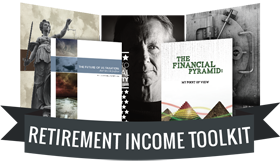Cash holdings, via savings accounts or money market instruments, are often ignored as part of a client’s investment strategy. To most investors, being “fully invested” means assets are allocated to risk-based investments (like bonds or stocks) in some fashion. In this market reflection, we will show why cash is a valuable asset and should be included as part of your overall investment strategy.
Cash as a strategic investment allocation
Cash, over an extended period, is generally a negative return investment due to loss of purchasing power. This is the reason we invest in assets that provide additional income through interest or dividend payments as well as principal growth through price appreciation. However, this doesn’t mean cash has no use in a client’s allocation. The main benefits of cash are:
- Funding known expense needs: When investors have known upcoming expenses, especially for those under a year away, cash provides assurance that those needs can be met with little to no risk.
- Insurance for unknown expense needs: While some expenses are seen beforehand, many expense needs can come as a surprise. Having a “buffer” of cash on hand provides value to pay for unforeseen expenses without severely altering the investment strategy.
- “Dry Powder”: Once you have enough cash to cover known expenses, and provide some insurance for unknown expenses, there is still a valuable strategic reason for holding some cash on hand. Cash provides flexibility and liquidity to fund opportunistic investments. Having “dry powder” in cash allows investors to act in a prudent manner and take advantage of opportunities rather than panic selling at unfortunate times to meet their expense needs.
How much cash is appropriate?
When establishing an asset allocation strategy, what is the appropriate level of cash on hand? While this is an important question, the answer is very dependent upon an individual’s needs, goals and risk tolerance. Here are some things to consider when thinking about cash levels as part of your strategy:
- Am I able to cover my upcoming expenses? Investors should consider cash as the primary vehicle to fund their short term needs (less than a year) and any known upcoming expenses. If investors are still generating income from work, this may provide some additional support, but everyone would benefit from a level of certainty that short term expenses can be met.
- Do I have cash set aside for a rainy day? In addition to known expenses, do I have enough in cash to cover an unforeseen expense like a car repair or medical need? Investors want to ensure that they have some protection from life circumstances, and that these incidents don’t derail their long term plans or cause selling at inopportune times.
- Am I holding too much cash? Conversely to holding cash to fund expenses, investors should not be holding cash in quantities that restrict them from earning their required rate of return. Remember, cash is a losing investment over time, and the safety of cash needs to be weighed against the loss of long term purchasing power. Investors need to build plans that incorporate safety AS WELL AS prudent risk taking to achieve their long term investment goals and objectives.
To expand on these Market Reflections or to discuss any of our investment portfolios, please do not hesitate to reach out to us at 775-674-2222.
